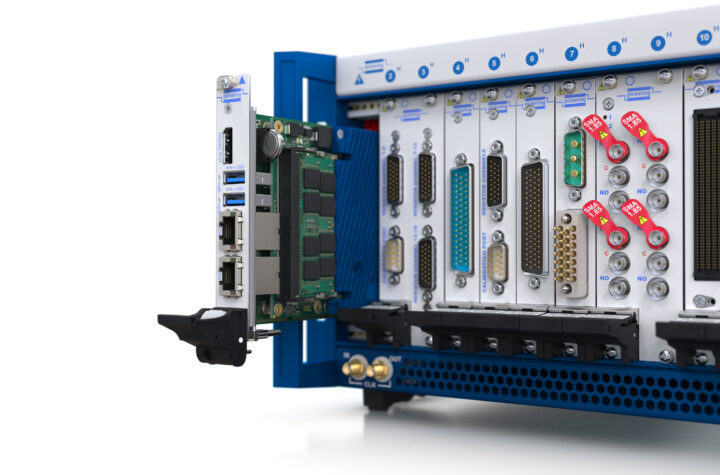
CD-adapco is pleased to announce the release of v4.20 of STAR-CD and es-ice IC Engine simulation software. The v4.20 release gives users extensive new physics capabilities and pre-processing developments to deliver rapid and more accurate in-cylinder simulation.
In es-ice, template automation has been further improved with an easier ability to capture geometric features in the 2D mesh giving improved cell quality for both the trimming and smoothing. In addition, the GUI supports dual and 2-component fuel specification so that setting up gas/diesel pilot, ethanol blend, or similar simulations is simplified. Post processing has been further enhanced with the optional generation of a PowerPoint summary report which includes details such as engine parameters, analysis statistics, integrated results.
V4.20 sees the first release of a new combustion model within STAR-CD, namely the Progress Variable Model – Multi-Fuel (PVM-MF). This model integrates the level-set (g-equation) model and flamelet-based approach into a single consolidated model, thereby removing the restriction of either premixed or diffusion-controlled combustion inherent in the individual models. The PVM-MF model allows for all modes of combustion to coexist – premixed, diffusion and autoignition. Users that wish to continue using the existing g-equation and DARS-TIF flamelet model may do so.
Customer experience with the ECFM-CLEH model during the past year has been extremely encouraging. Evolution of this model together with the addition of the NORA (Nitrogen Oxides Relaxation Approach) NOx model, which accounts for all of the nitrogen oxides, and ISSIM (Imposed Stretch Spark Ignition Model), an Eulerian spark-ignition model, which are available in the v4.20 release are demonstrating further advantages in the predictive capability of these phenomena.
Another important sub-model has also been included in the v4.20 release and that operates in conjunction with the ECFM-CLEH combustion model is a sectional model for soot. In this model, all of the key processes affecting the soot size and mass distributions are explicitly modeled such that no presumptions are made about the distribution shapes. This is extremely important for modeling, for example, gasoline engine particulates where bi-modal distributions are often observed experimentally and cannot be realistically represented using simple assumptions of distribution shape.
Following the introduction of user-defined detailed fuel chemistry in v4.18, in the v4.20 release it is now possible for users to generate libraries for the ECFM-3Z and PVM combustion models using their own detailed chemistry solver conforming to the definition of variables and format of the libraries provided by CD-adapco and which is available to any 3rd party. This open format allows specialist fuel chemistry groups to generate libraries using detailed chemistry mechanisms of their choosing using any chemistry solver with which they are familiar and which can then be used in the flame structural models available in STAR-CD.
There are significant developments to the in-cylinder LES capability available in the v4.20 release. Firstly, the Dynamic Structure Model (DSM) has been introduced. This model is superior to the Smagorinsky model in a number of respects; in particular it does not require the stresses to be aligned with the strain rate – an important characteristic in IC Engines where flows with significant curvature and anisotropy often predominate. Secondly, the WALE near-wall model is now available and this has a more realistic behavior of the eddy viscosity in strong shear flows. Finally, there have been major improvements to the LES spark ignition model so that early flame development is responsive to local flow and mixture conditions, thereby enabling more realistic assessment of cycle-by-cycle variations.
In addition to the many combustion and turbulence model developments, the spray-wall impingement model developed by Prof Senda at Doshisha University has been implemented. This model was developed and validated using experimental data obtained using gasoline and diesel fuels under engine-like conditions and covers a comprehensive range of impingement parameters and wall surface temperatures.
About CD-adapco
CD-adapco (http://www.cd-adapco.com) is the world’s largest privately held CFD focused CAE provider. Our core products are the technology-leading simulation packages, STAR-CCM+ and STAR-CD. The scope of our activities extends well beyond CFD software development to encompass a wide range of CAE engineering services in fluid dynamics, heat transfer and structural engineering. A privately owned company, CD-adapco has maintained 17% organic year-on-year growth over the last 5 years. CD-adapco employs 750 individuals, working at 30 different offices across the globe.














More Stories
LED Lighting for Heavy-Duty Applications: Durability, Efficiency, and Versatility
Celanese Materials Shine in Multiple Category Winners at 2024 SPE Automotive Innovation Awards
New future-ready single-slot PXIe controller for high-performance T&M applications from Pickering Interfaces